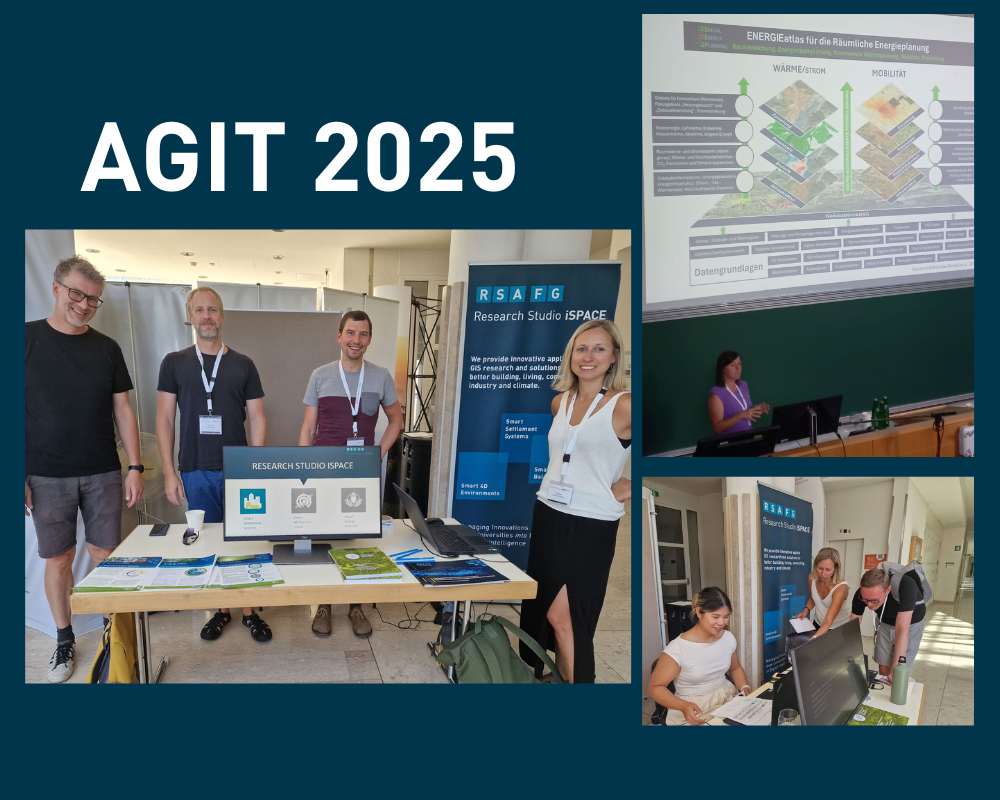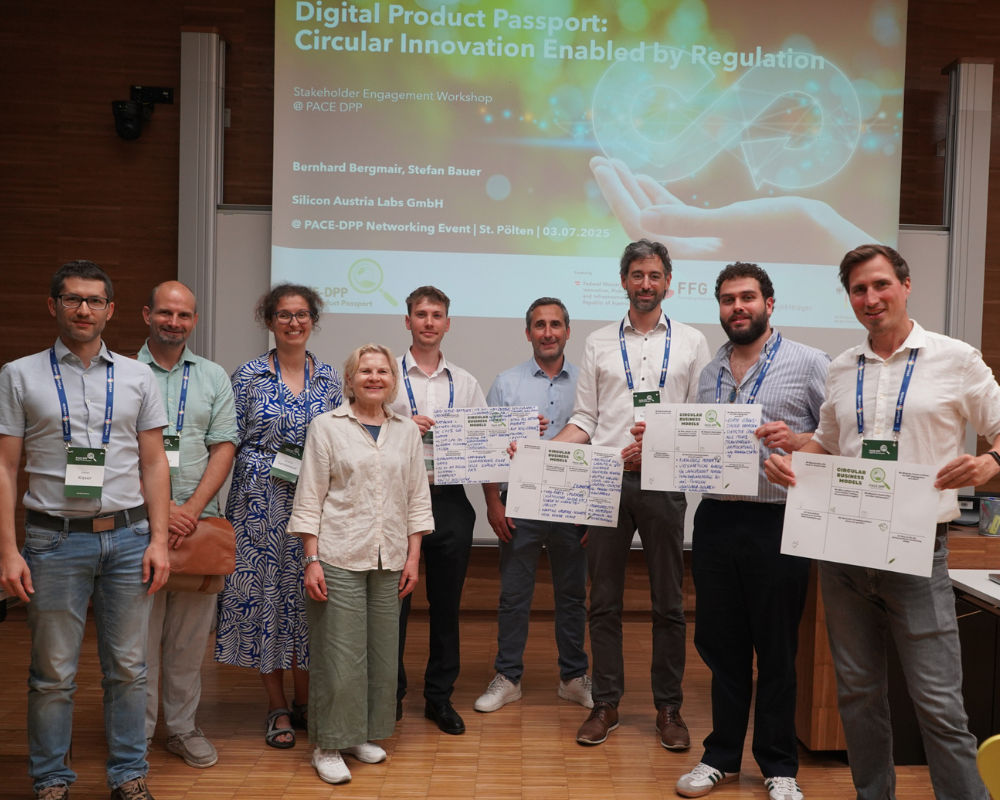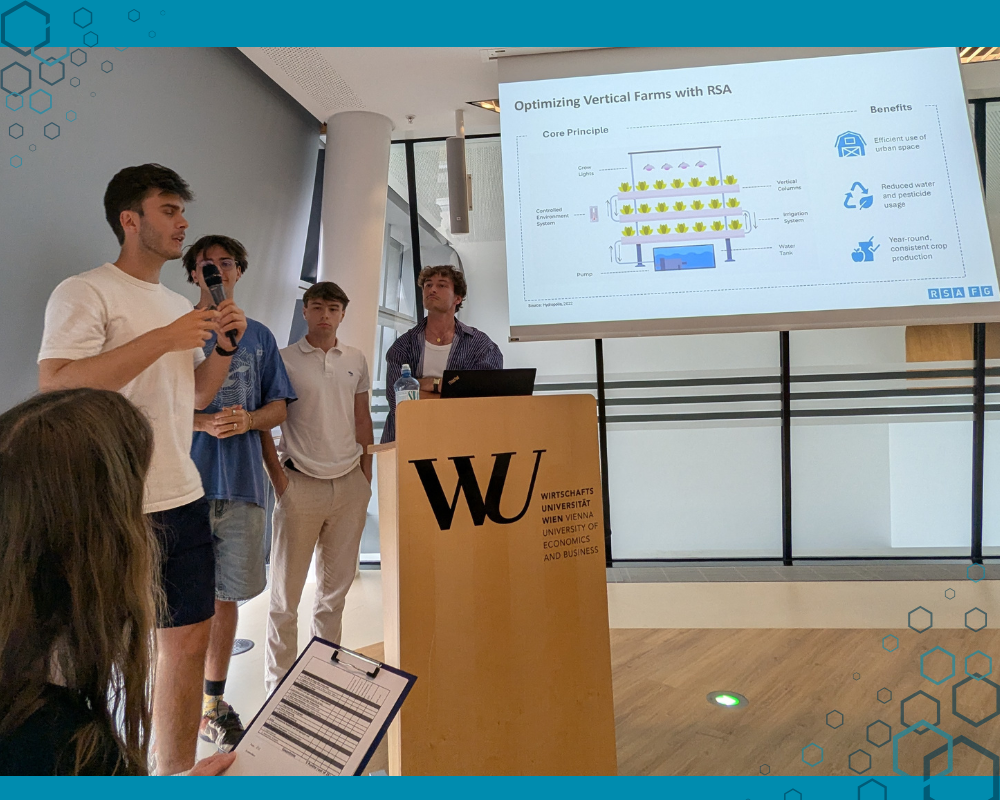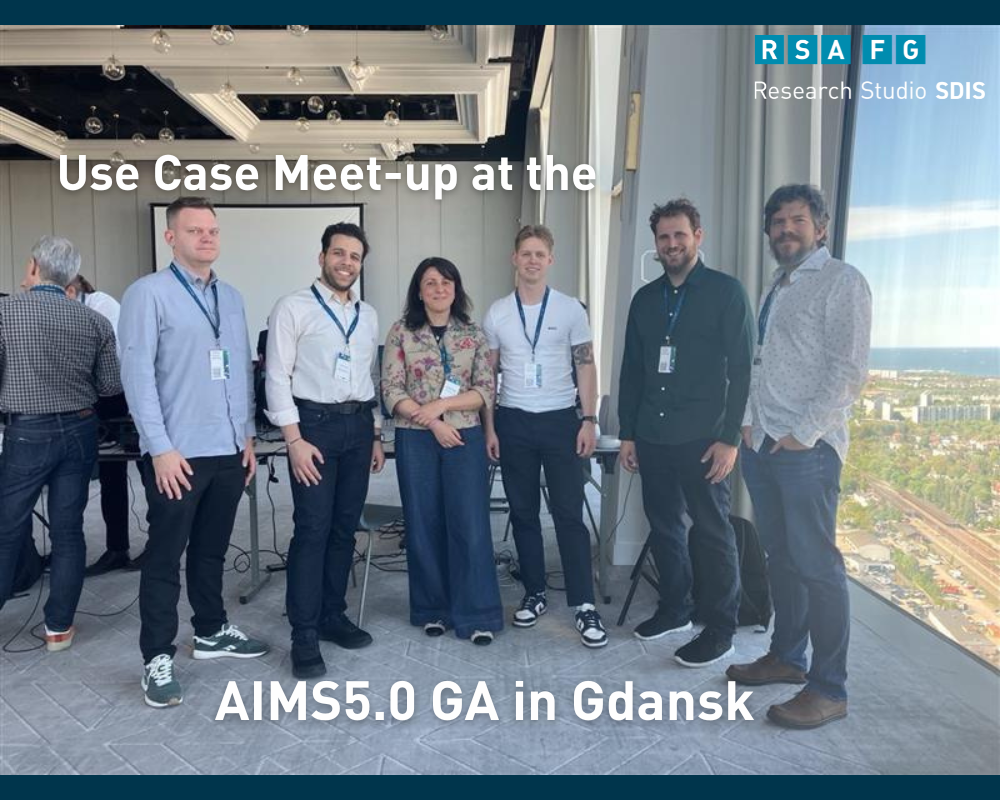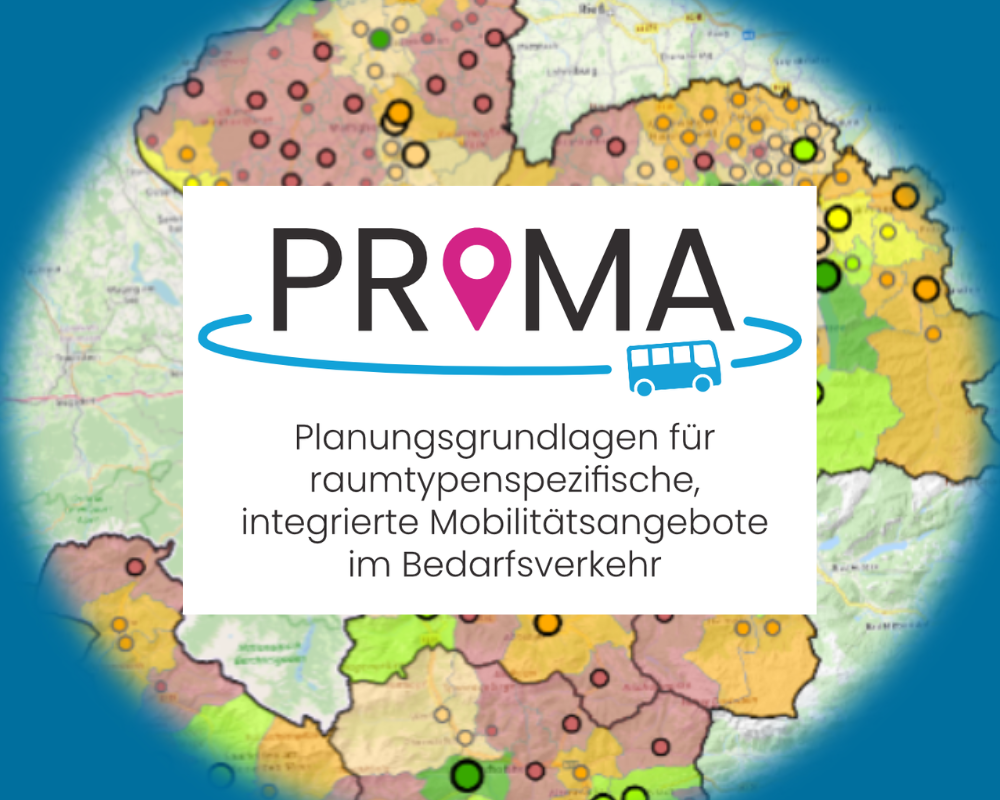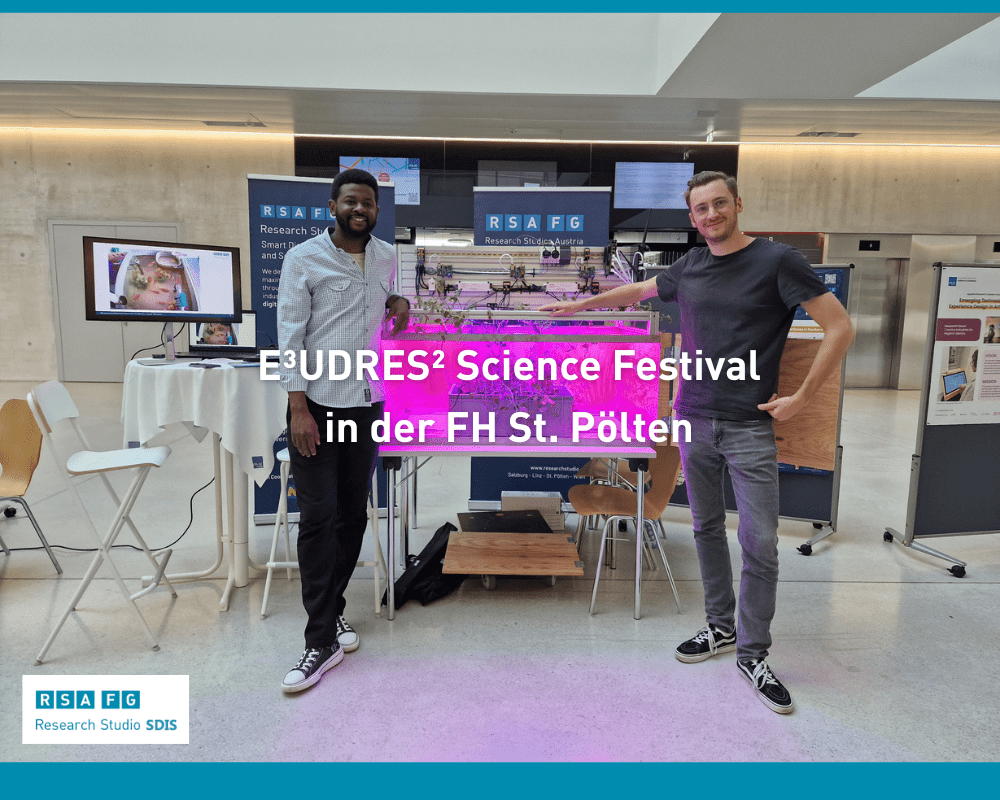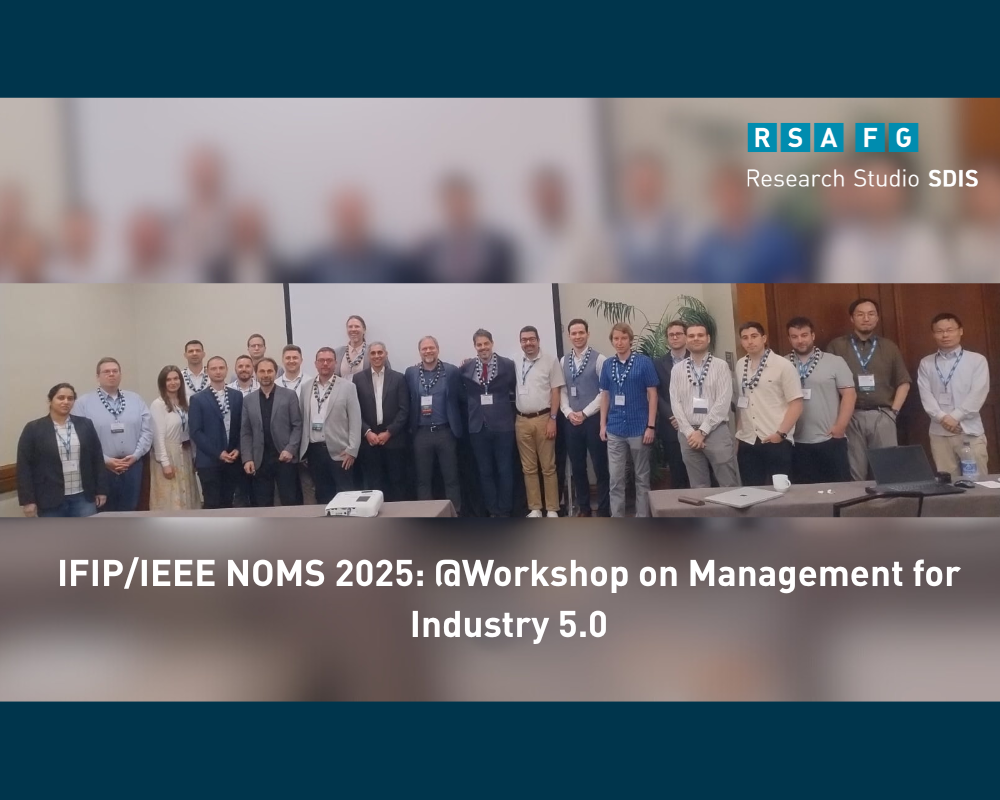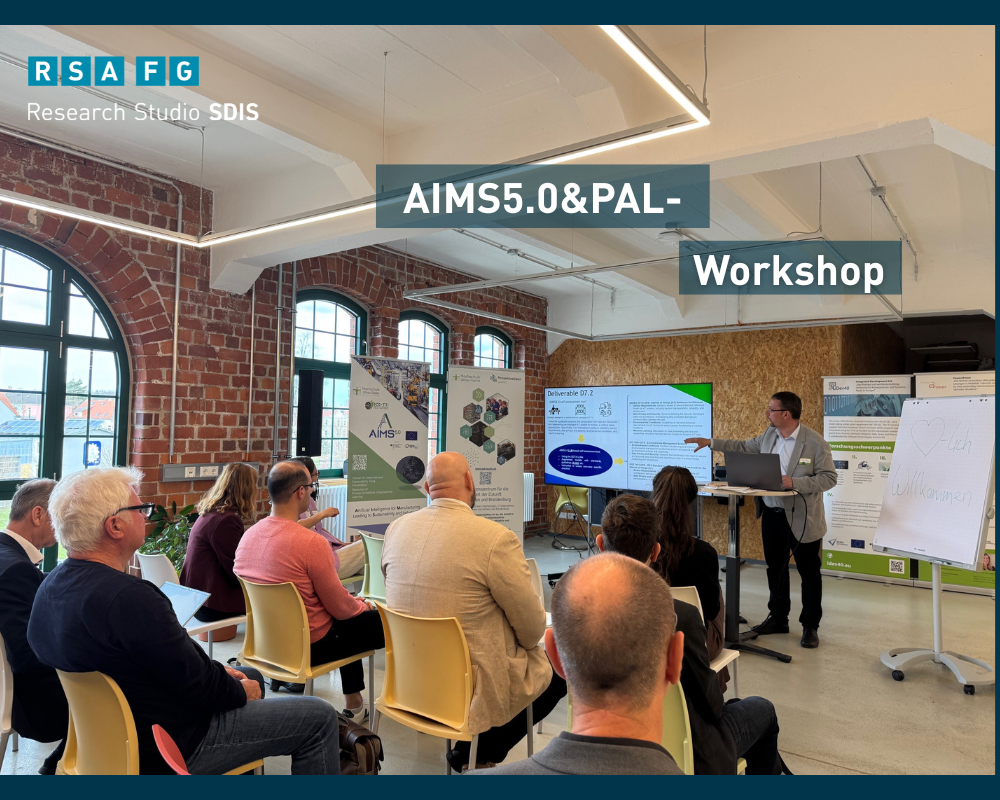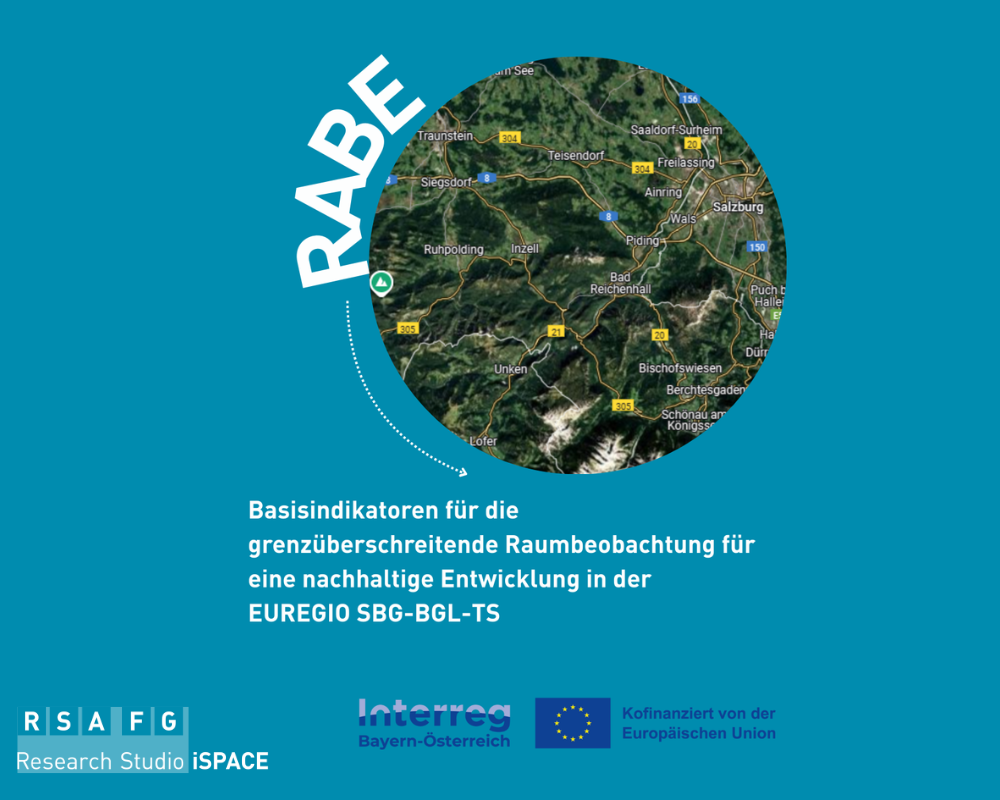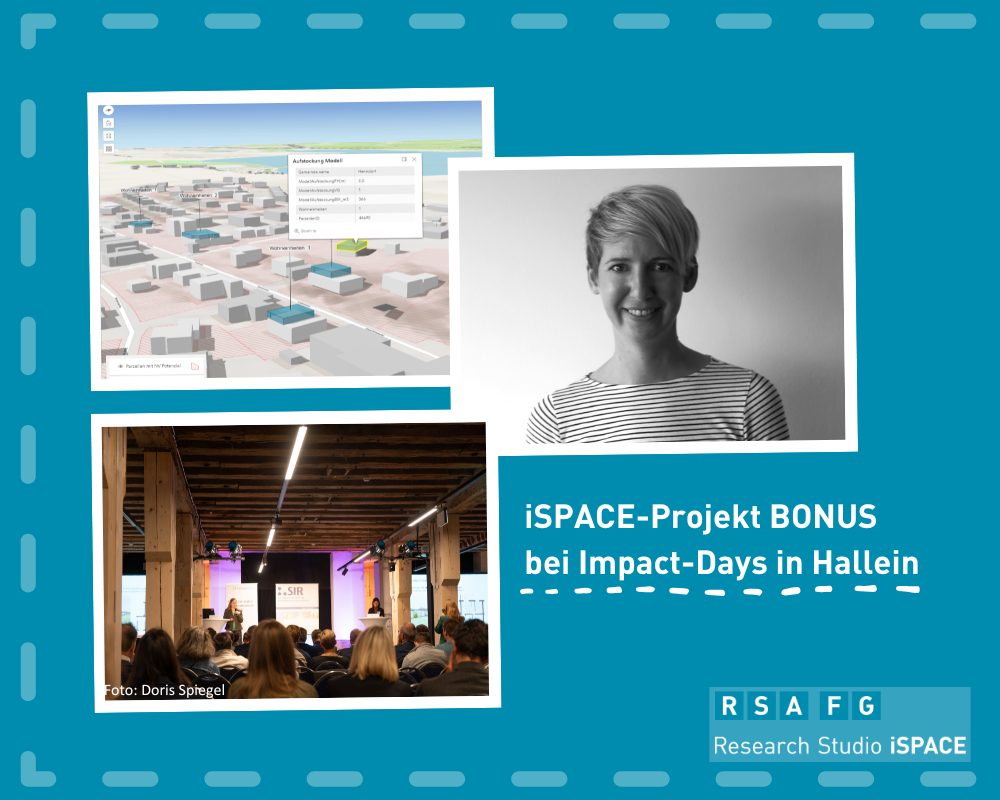Get the latest info on…
AGIT 2025 with exciting contributions from iSPACE
Two days full of lectures, workshops, and discussions—that was the conference on geoinformatics at NAWI Salzburg. Once again, Studio iSPACE was well represented.
First Austrian networking event on the Digital Product Pass at the St. Pölten University of Applied Sciences
Initiatives in dialogue: Around 100 people accepted the invitation from the Austrian flagship project PACE-DPP and exchanged ideas on forward-looking technologies for the European circular economy strategy at the first DPP networking event in Austria.
Students optimize Vertical Farms with RSA FG researchers
SDIS-researchers Belal Abu Naim and Yasin Ghafourian coached students of the WU Vienna. Together they explored research questions of the project AIMS5.0.
General Assembly in Gdansk marks milestone for AIMS5.0
The recent AIMS5.0 General Assembly brought together 53 project partners from across Europe for two days of strategic collaboration and intensive discussion.
PRIMA wraps up with a presentation in Hamburg
The PRIMA project (2023–2025) has been successfully completed. A presentation in Hamburg marked the culmination of the project. The aim of the project was to develop evidence-based, space-specific planning principles for integrated mobility services in demand-responsive transport. Based on existing initiatives, a systematic approach to the interaction between public transport and on-demand transport was developed.
SDIS attends Science Fair at UAS St. Pölten
For three days, regional research took center stage at the FH St. Pölten during the E³UDRES² Science Festival “Local Pulse, Global Waves.” The SDIS team presented its Agrarsense and EDEN projects during a public demonstration walk.
First Austrian networking event on the Digital Product Pass at the St. Pölten University of Applied Sciences
Initiatives in dialogue: Around 100 people accepted the invitation from the Austrian flagship project PACE-DPP and exchanged ideas on forward-looking technologies for the European circular economy strategy at the first DPP networking event in Austria.
Students optimize Vertical Farms with RSA FG researchers
SDIS-researchers Belal Abu Naim and Yasin Ghafourian coached students of the WU Vienna. Together they explored research questions of the project AIMS5.0.
General Assembly in Gdansk marks milestone for AIMS5.0
The recent AIMS5.0 General Assembly brought together 53 project partners from across Europe for two days of strategic collaboration and intensive discussion.
PRIMA wraps up with a presentation in Hamburg
The PRIMA project (2023–2025) has been successfully completed. A presentation in Hamburg marked the culmination of the project. The aim of the project was to develop evidence-based, space-specific planning principles for integrated mobility services in demand-responsive transport. Based on existing initiatives, a systematic approach to the interaction between public transport and on-demand transport was developed.
SDIS attends Science Fair at UAS St. Pölten
For three days, regional research took center stage at the FH St. Pölten during the E³UDRES² Science Festival “Local Pulse, Global Waves.” The SDIS team presented its Agrarsense and EDEN projects during a public demonstration walk.
Workshop on Management in Industry5.0 in Honolulu
At the IFIP/IEEE NOMS 2025 - Network Operations and Management Symposium, held in Hawaii from May 12th to 16th, the workshop on Management for Industry 5.0 (MFI5.0) brought together researchers and experts. Among the participants were Chief Scientific Officer Markus Tauber and Senior Researcher Belal Abu-Naim, representing RSA FG.
Networking-Event zum Digitalen Produktpass
In unserem Projekt PACE DPP forschen wir an einem zukunftsträchtigem Thema: dem Digitalen Produktpass. Der Projektlead Virtual Vehicle lädt dazu am 3. Juli in die FH St. Pölten
AI in Action: Innovation, Acceptance and Ethics
Representatives from the AIMS5.0 and PAL projects came together at Zittau/Görlitz University of Applied Sciences for a joint workshop centered on the practical implementation of AI in industrial environments.
Project creates database for spatial planning in the border region
In terms of transport, land use and housing - the interdependencies in the Salzburg - Berchtesgadener Land - Traunstein border region are close. This is why coordinated strategies are needed for successful spatial and settlement development. The RABE project is now creating the data basis for this.
AGIT 2025 with exciting contributions from iSPACE
Two days full of lectures, workshops, and discussions—that was the conference on geoinformatics at NAWI Salzburg. Once again, Studio iSPACE was well represented.
First Austrian networking event on the Digital Product Pass at the St. Pölten University of Applied Sciences
Initiatives in dialogue: Around 100 people accepted the invitation from the Austrian flagship project PACE-DPP and exchanged ideas on forward-looking technologies for the European circular economy strategy at the first DPP networking event in Austria.
Students optimize Vertical Farms with RSA FG researchers
SDIS-researchers Belal Abu Naim and Yasin Ghafourian coached students of the WU Vienna. Together they explored research questions of the project AIMS5.0.
iSPACE project on redensification at the Impact Days in Hallein
At the RENOWAVE.AT Impact Days in Hallein, the Innovation Lab cooperated for the first time with the Alpine Building Network and the SIR - Salzburg Institute for Spatial Planning and Housing. ISPACE researcher Sabine Gadocha gave a presentation on redensification potential in Salzburg and strategies for mobilising it.
General Assembly in Gdansk marks milestone for AIMS5.0
The recent AIMS5.0 General Assembly brought together 53 project partners from across Europe for two days of strategic collaboration and intensive discussion.
PRIMA wraps up with a presentation in Hamburg
The PRIMA project (2023–2025) has been successfully completed. A presentation in Hamburg marked the culmination of the project. The aim of the project was to develop evidence-based, space-specific planning principles for integrated mobility services in demand-responsive transport. Based on existing initiatives, a systematic approach to the interaction between public transport and on-demand transport was developed.


